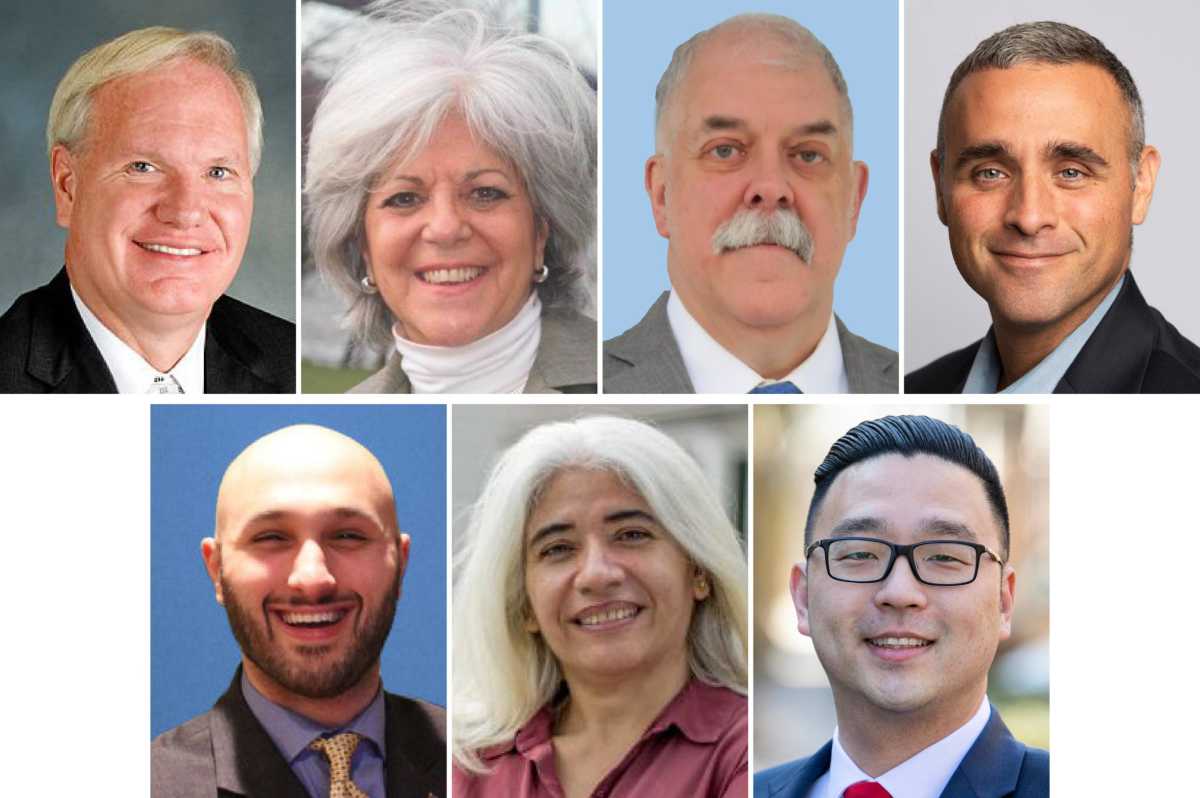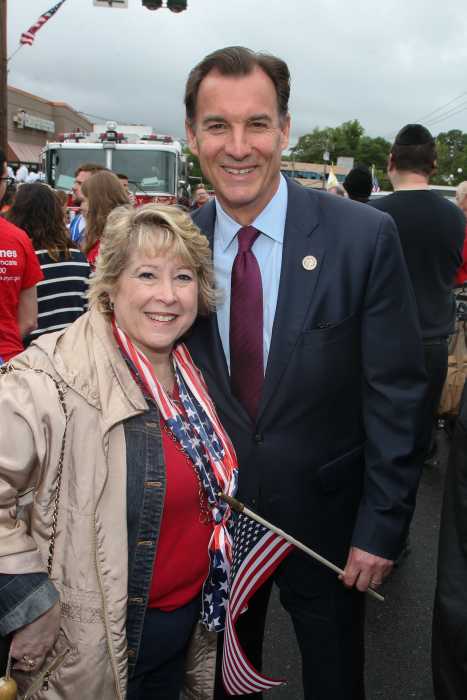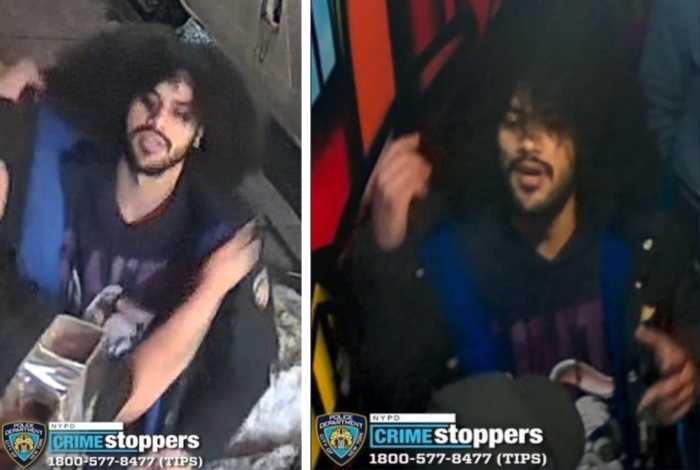There are seven candidates running to represent District 19 in the City Council this year. It’s the only race in Queens that will have a competitive Republican primary in June, in addition to a Democratic one.
The district, which encompasses parts of Auburndale, Bay Terrace, Bayside, Beechhurst, College Point, Douglaston, Flushing, Little Neck, Malba, Whitestone, has been represented in the city’s legislative body by Paul Vallone since 2013.
Like many other council members in Queens and across the city, Vallone will be term-limited out of office this year.
The winner of November’s general election will represent a district facing a lack of COVID-19 vaccination sites and a battle over a new senior homeless women’s shelter until 2023.
QNS sent five questions to each candidate running for the District 19 City Council seat including Democrats Tony Avella, Adriana Aviles, Nabaraj KC, Richard Lee, Austin Shafran and Frank Spangenberg, and Republicans Vickie Paladino and John-Alexander Sakelos. Four of the seven candidates responded.
See their answers, listed alphabetically, below:
Tony Avella
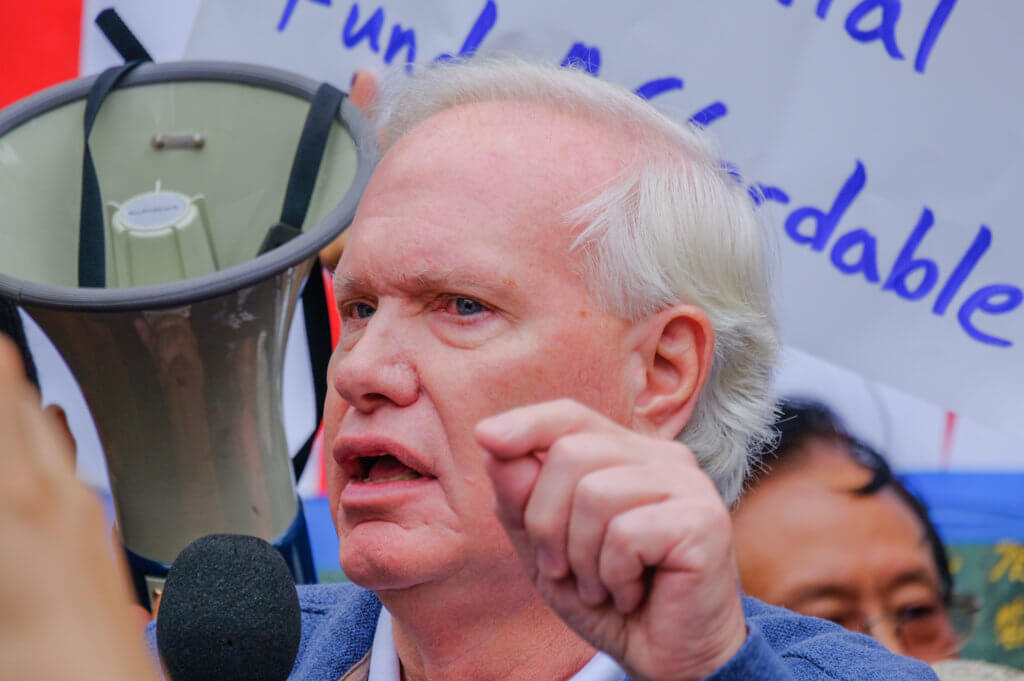
QNS: What, in your opinion, are the top three most pressing issues in your district?
Avella: The COVID-19 pandemic will continue to be the major issue for the 19th City Council District and the entire city. Even if the vaccine has been widely distributed, restoring lost jobs and helping small businesses recover will be priorities. For education, keeping the Specialized High School Admissions Test (SHSAT) and Gifted and Talented programs are a key priority. I have always actively supported and fought for the continuation of SHSAT as well as the continuation and expansion of Gifted and Talented programs. Each school should have such a program. One of the most serious issues facing our area is the threatened attack on one family home neighborhoods. Recent legislation introduced by City Council Speaker Corey Johnson is just the beginning. There is a growing development attitude to eliminate one-family home districts. Our suburban lifestyle in northeast Queens would forever be destroyed. This must be stopped.
QNS: What aspect of your background speaks best to your abilities as a City Council member?
Avella: I have lived and been a community activist in northeast Queens for over 40 years. Prior to elective office, I was president of numerous community civic organizations including the Bayside Historical Society, College Point Civic Association and Northshore Anti-Graffiti Volunteers. This volunteer work combined with serving as the New York City Council Member for the 19th District from 2002 through 2009 and as the New York state senator in our area from 2011 through 2018, has provided me the necessary experience and knowledge to be, once again, an effective Council member. In addition, my past government experience working in the mayor’s office under Mayors Koch and Dinkins further demonstrates I am the most experienced and qualified candidate in the race.
QNS: What do you love most about your district?
Avella: The most wonderful aspect of northeast Queens is its suburban atmosphere and lifestyle, while living in an urban city environment. The tree-lined streets, the parks and the waterfront access all add to that small town quality. The community organizations, Memorial Day parades, volunteerism and the quality of life make it special. The cultural institutions/places add to the uniqueness of our area. Examples include the landmark historic Poppenhusen Institute (the first free kindergarten in the United States), the landmarked Stone House on Bell Boulevard and the landmarked Officer’s Club and battlements on Fort Totten. Our schools and teachers are among the best in the city. You don’t need to leave the district to access fantastic restaurants and local stores. And, most importantly it is the diversity and community spirit of the people who live here. It’s the very reason my wife and I chose to live here.
QNS: Which one of your opponents will you be ranking second on your ballot and why?
Avella: One of the first elections I was involved with years ago was the old School Board elections which used ranked voting. I remember what a disaster that system was. It was one of the reasons I believe that system was scrapped. I do not believe that a ranked-choice voting system is the best way to improve our elections. I would have preferred a run-off system between the two top candidates. It seems counterproductive that rank voting will create a process whereby a candidate who receives the most first-place votes, the person voters believe would be the best candidate, could lose the election. I do not believe that makes any sense. As such, I will be voting for candidates as I normally would under the previous system.
QNS: District 19 has a higher than average population of elderly people but is also lacking in COVID-19 vaccination sites, like many neighborhoods in the city. What has your campaign done or what do you plan on doing, if elected, to advocate for more vaccination sites in the district?
Avella: I was one the first candidates to tweet at the mayor that northeast Queens did not have a vaccine distribution site. If elected, I would introduce legislation to ensure that future vaccine sites are set up in every neighborhood. It is unconscionable that our residents have to travel sometimes great distances in order to receive a vaccination. During my previous tenure in the City Council, I allocated funding to a local nonprofit for senior citizen transportation. This enabled them to go to doctor’s offices, shopping or other necessities. I would do so again. It is also essential that bus routes that have been cut over the past few years be reinstated. We live in a “transit desert.” Since the state Legislature recently approved congestion pricing, it is crucial that the revenue generated be directed to improving our transportation needs in northeast Queens, not only for seniors but for all residents.
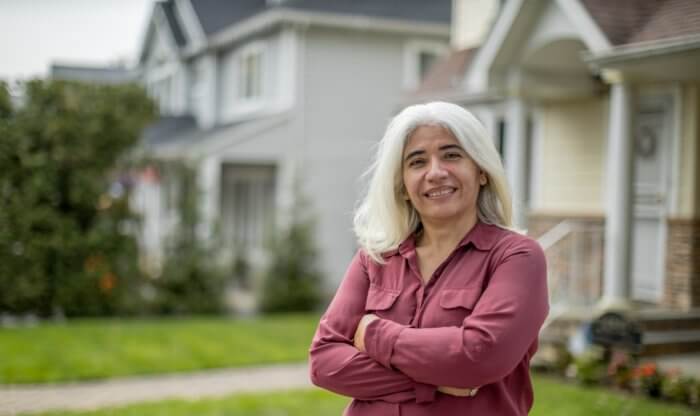
QNS: What, in your opinion, are the top three most pressing issues in your district?
Aviles: Becoming a resident of District 19 before children and now raising them and living here for over 14 years while being an active participant on so many issues, the three most pressing issues I presently see in our district are education, public safety and advocacy for our seniors.
QNS: What aspect of your background speaks best to your abilities as a City Council member?
Aviles: As a member of the community who does not have any ties or allegiances to special interest groups, I feel that I can truly represent our community. Our residents need to have their voices heard loud and clear without fear of the diminishment of allegiances that can taint decision-making. Due to the pandemic, we have seen the struggles of our families when it comes to educating our children with the limited resources mandated by the current administration. Having been and still being a part of the educational conversations has given me an advantage over other candidates. Being president of our District 26 Community Education Council has allowed me to be a loud voice for many of our families on so many topics that are important to our district families. These may include the SHSAT, Gifted and Talented programs, and the ongoing struggles families are currently facing while trying to educate their children. My experience as an NYPD officer also give me an additional advantage over other candidates, in that I know firsthand what it takes to ensure our communities are safe and what our law enforcement needs to protect our communities while ensuring the needs of the community are met equitably. As a retired member of law enforcement, I know what it means to be able to protect and serve our community. I also know firsthand what are the obstacles that our law enforcement face on a daily basis along with their interactions with diverse communities.
QNS: What do you love most about your district?
Aviles: What I love the most about my district is the importance of family oriented values such as education, public safety and advocacy of our most vulnerable: our seniors. This district is home to the best schools in the city, as well as the safest neighborhoods working side by side with our law enforcement. District 19 has an incredibly diverse immigrant population, which is reflected in our eateries across the community. Respecting and advocating for our seniors is also reflected on the highest percentage across NYC of senior residents that make District 19 their home. Family values are treasured in this NYC district.
QNS: Which one of your opponents will you be ranking second on your ballot and why?
Aviles: I would rank Richard Lee second on my ballot. He has been a resident of our community, and is raising his young family while advocating for similar platforms. He is also new to these conversations, so he is also speaking on current issues without bringing additional past allegiances to the table.
QNS: District 19 has a higher than average population of elderly people but is also lacking in COVID-19 vaccination sites, like many neighborhoods in the city. What has your campaign done or what do you plan on doing, if elected, to advocate for more vaccination sites in the district?
Aviles: I am not waiting to be elected to advocate for more vaccination sites. I have been extremely vocal on social media, while sharing concerns to our local elected as well as trying to schedule our seniors with vaccination dates and locations. It is unfortunate that our district, with the highest population of seniors, cannot get a vaccination scheduled quicker and easier. The process to find a vaccination is extremely frustrating and cumbersome. In a city where we need to move forward, making it difficult to navigate for our most vulnerable doesn’t make sense. Our senior hubs need to be allocated with NYC reps that are able to schedule vaccination dates for anyone who needs a vaccination, as well as offer free transportation. The current vaccination sites need to be user friendly and not so complicated.
Richard Lee
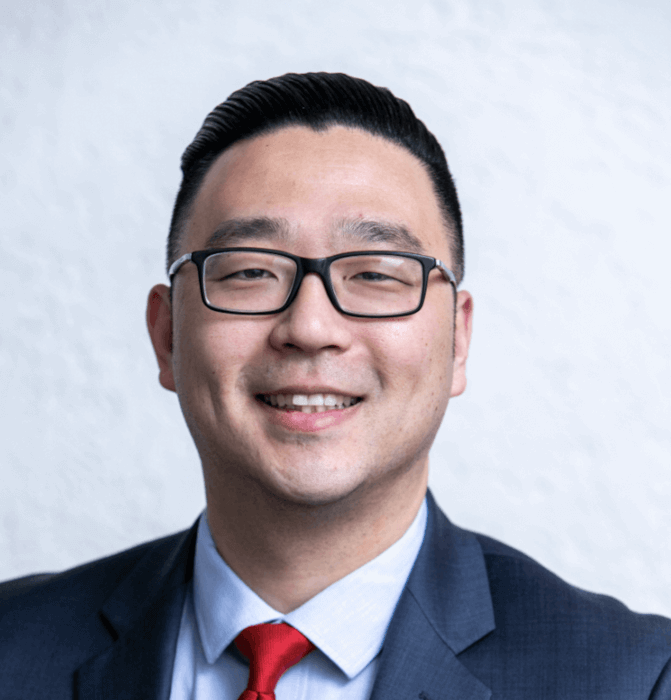
QNS: What, in your opinion, are the top three most pressing issues in your district?
Lee: The three most pressing issues in District 19 are public safety/quality of life, our schools and our infrastructure. We must ensure our communities are safe places for families to raise their children and that we are preserving the unique low density character of our neighborhoods. Our schools face some of the highest overcrowding rates while receiving some of the least funding per pupil, a problem that can only be tackled with a deep understanding of budgets and a parental appreciation for how our schools are funded and run. Finally, our district’s infrastructure, from our crumbling roads, to our lack of accessible transportation options, are not working for our community. I will implement a comprehensive review by the city to ensure that our streets are safe and accessible for all, including cars, buses, bikers and pedestrians.
QNS: What aspect of your background speaks best to your abilities as a City Council member?
Lee: I have spent the majority of my career in public service. I started as a community organizer and policy director for a nonprofit organization. I then served as budget and legislative director to then-City Council Deputy Majority Leader Leroy Comrie. Since 2014, I served as budget director for the Queens borough president, where I oversaw nearly $500 million in capital improvements throughout Queens, including nearly $80 million in upgrades in our schools, $140 million for our parks, and other investments in our infrastructure. I was also charged with drafting the borough president’s annual response to the mayor’s budget, highlighting the inequity in the city budget and fighting for our fair share. As a native of northeast Queens, I understand the myriad of issues our neighborhoods face, and I believe I can couple this with my deep understanding of how the city works to fight for the needs of this district.
QNS: What do you love most about your district?
Lee: I love the character of our neighborhoods — a slower and quieter pace of life that isn’t found in many parts of the city; homes that were built 100 years ago still preserved and maintained for future generations; small businesses that define our central business districts, not big-box retailers; neighbors of diverse backgrounds. My wife and I both grew up in northeast Queens and we knew we wanted to raise our children here. When we bought our house, we immediately knew it was our “forever home.”
QNS: Which one of your opponents will you be ranking second on your ballot and why?
Lee: There haven’t been many opportunities to learn the policy perspectives of other candidates yet. As we have candidate forums, I would like to know where the other candidates stand on issues, then determine ranked-choice voting with those that align with my stance on issues.
QNS: District 19 has a higher than average population of elderly people but is also lacking in COVID-19 vaccination sites, like many neighborhoods in the city. What has your campaign done or what do you plan on doing, if elected, to advocate for more vaccination sites in the district?
Lee: For weeks, I have advocated and joined a coalition of leaders to call for the opening of a permanent vaccination site for northeast Queens. We have a large elder population, and it’s disgraceful that we don’t have a vaccine site. A few weeks ago, a pop-up vaccination site opened at Korean Community Services in Bayside. Within minutes of the site opening, all slots were filled. The governor and mayor must bring a site to our district. There is a clear need for a permanent vaccination site. Many of our elderly don’t have access to affordable transportation. And there is a clear technology divide — for many, access to an internet-based appointment system is not an option. I will utilize our network of community organizations to serve as permanent vaccine sites. These organizations have experience working with our communities, able to provide accessible service that is linguistically and culturally sensitive, ensuring our elders are gracefully vaccinated.
John-Alexander Sakelos
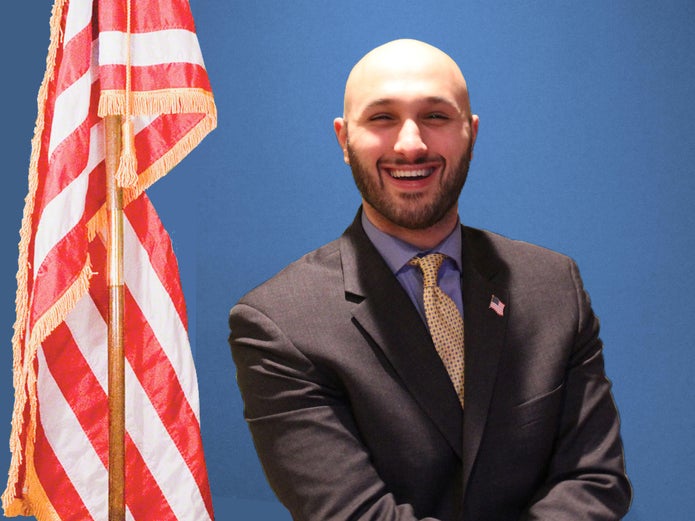
QNS: What, in your opinion, are the top three most pressing issues in your district?
Sakelos: Public safety: Crime and NYPD retirement are at record highs because of bad government. This includes our current representative’s disastrous “defund the NYPD” vote and the opening of shelters in our community. Education: Our Department of Education was in disarray before COVID-19; now it is almost beyond repair. We need to bring higher standards and accountability to the DOE. That means reinstating the G&T programs and resuming in-person learning. The economy: NYC is quickly losing its place as the greatest city in the world because the businesses and people who make it that are in mass exodus. We need to incentivize entrepreneurship and reduce costs for the middle class.
QNS: What aspect of your background speaks best to your abilities as a City Council member?
Sakelos: These are the experiences that I think I will draw on the most once I am in the City Council. 1. Small business owner (Flowers By Peter in Flushing), 2. Union member (AEA), 3. Teacher and professor. District 19 needs somebody who can understand the needs of small businesses like mine while fighting for the true middle class and not corporations and lobbyists. My experiences as a teacher and professor will also be a big help in our effort to reform the DOE; my history in theater has taught me the most vital of all qualities: the ability to collaborate and think outside the box.
QNS: What do you love most about your district?
Sakelos: The people, the view of the bridge from Ft. Totten, and Amore’s Pizza in College Point. I am a simple man.
QNS: Which one of your opponents will you be ranking second on your ballot and why?
Sakelos: Ranked-choice voting is a means of giving the incumbent the edge and I don’t believe in it as it weakens an individual’s vote. As such, I will only be voting for one person in the 2021 City Council Race. Guess who it will be?
QNS: District 19 has a higher than average population of elderly people but is also lacking in COVID-19 vaccination sites, like many neighborhoods in the city. What has your campaign done or what do you plan on doing, if elected, to advocate for more vaccination sites in the district?
Sakelos: It is no secret the vaccine rollout in NYC has been a disgrace. District 19 is currently dealing with a void in leadership and that is why we do not have a vaccine site; the squeaky wheel gets the oil and once elected I will be a very squeaky wheel for the people of the 19th. Unelected, the most I can do, like all of you, is call our current elected officials and make my voice heard. Here is our current councilman’s office line 718-619-8611. I encourage you all to do the same.
Austin Shafran
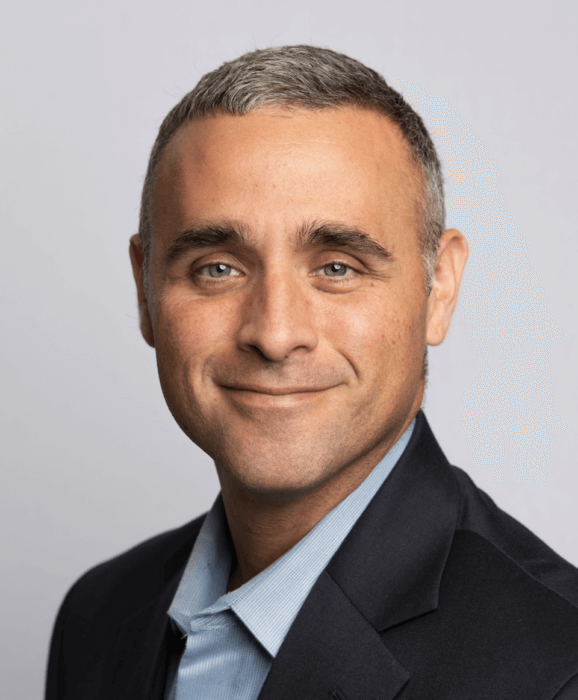
QNS: What, in your opinion, are the top three most pressing issues in your district?
Shafran: Having been born and raised in the district and now raising two young sons here, I believe that the three most pressing issues facing voters here are passing property tax relief for home-owners and reforming the property tax assessment system for co-op and condo owners; establishing and fully funding a dedicated senior transportation program to provide free car service to seniors on fixed incomes and those who are mobility-impaired but don’t qualify for Access-A-Ride; and bringing more resources to reduce class sizes while reforming school governance policies to allow for greater parental and educator input into the decision making process.
QNS: What aspect of your background speaks best to your abilities as a City Council member?
Shafran: Having worked at the highest levels of government and run a successful small business, I have the right experience to meet the unique challenges we face right now. More importantly, as someone raising two young boys in the same neighborhood I grew up in while caring for older parents I’m personally motivated by the experiences my family has faced to take a more inclusive and innovative neighborhood-driven approach to deliver more funding for schools, better services for seniors, and tax relief and economic assistance for families and businesses to help our communities come out of this crisis stronger and safer.
QNS: What do you love most about your district?
Shafran: Raising my family in the same community where I was raised is a treasure. Playing Bayside Little League baseball with Mason at Crocheron Park where I played with my dad, taking baby Teddy for a stroll by Fort Totten and the Bayside Marina where I learned to fish, and seeing them get to attend the great local schools with amazing educators that helped me advance in life is the pleasure of a lifetime. But the outpouring of support from neighbors when my family was struck with COVID is the quality I love most about the district – its people.
QNS: Which one of your opponents will you be ranking second on your ballot and why?
Shafran: Since no other candidate in the race has actually asked me for my vote yet, as of now I’m planning on writing in my wife because truth be told she’s the most qualified person I know and there’s no one I’d trust more to represent our community and its families than her.
QNS: District 19 has a higher than average population of elderly people but is also lacking in COVID-19 vaccination sites, like many neighborhoods in the city. What has your campaign done or what do you plan on doing, if elected, to advocate for more vaccination sites in the district?
Shafran: Since the start of the testing and vaccination process I’ve said that Northeast Queens needs a permanent vaccination site and it was inexcusable negligence by the city to ignore our area. We could have been using closed movie theaters and other vacant commercial spaces to serve the needs of our most vulnerable community. I would dedicate budgetary resources to ensure that we have a permanent site, as well as mobile pop-up locations because the need for vaccinations is not likely going away and we must be much better prepared and protective going forward.
Francis Spangenberg
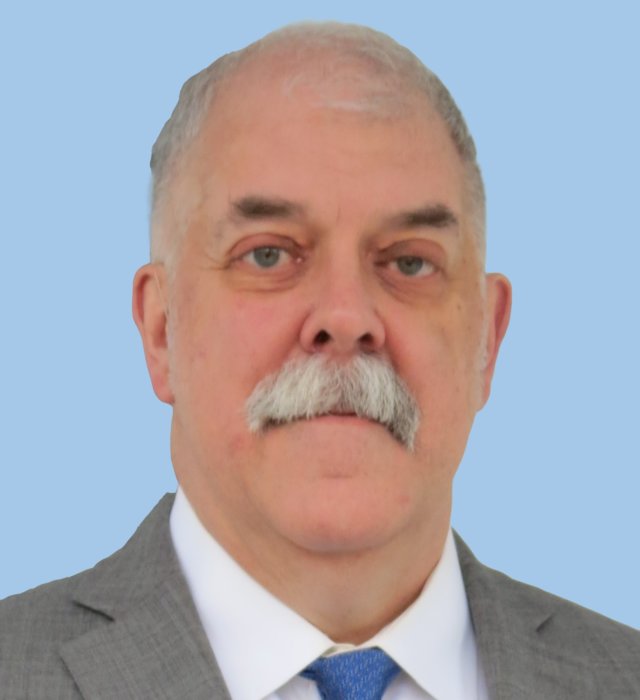
QNS: What, in your opinion, are the top three most pressing issues in your district?
Spangenberg: The first pressing issue for our district is the need to maintain the public safety gains of the recent past. Recently, there have been disturbing increases in certain crimes in our district, including burglaries and auto thefts, and with anti-Asian hate crimes on the rise, turning slogans such as “defund the police” into public policy is ill-conceived and dangerous. Improved relations between police and their communities can be achieved through better training and recruitment, rather than through cutting police services or personnel. The second pressing issue is education. We need to address school overcrowding in our district today, rather than years from now. Construction of new schools will take years, so what we need are more immediate solutions, such as using temporary classroom structures that can be removed from school grounds when they are no longer needed. We also need to preserve the Specialized High School Admission Test, or SHSAT. A third pressing issue is maintaining zoning for one-family houses, and preventing reckless overdevelopment that would destroy the character on northeastern Queens. If we don’t fight for this issue now, it will soon become too late, because once the special character and atmosphere of a neighborhood is gone, it is gone for good.
QNS: What aspect of your background speaks best to your abilities as a City Council member?
Spangenberg: My life has been dedicated to serving my community, and through that service I have gained unique and valuable experience that I want to continue to use for the benefit of our community. As someone who worked as a high school teacher for several years, I understand fully the kind of support that students and teachers alike need in order to keep our local schools among the best in the city. In my 34 years of service in policing, I worked not only on patrol, but also performing analysis, planning, and research at the highest levels of the Police Department. I developed expertise not only in the reduction and prevention of crime, but also in such areas as program development, public transit operations, emergency management, and designing traffic plans for pedestrians and vehicles. During that time I also earned a Master’s in Public Administration from Harvard, and a Ph.D. in criminal justice, and taught in the graduate program at John Jay. I therefore have a complete grasp of what law enforcement agencies are or are not capable of achieving. I also know both from personal experience and from the best research available which methods of recruitment and training are most likely that will lead to having police officers who understand, respect, and work well with the community, and which current public policy proposals are instead likely to be unsuccessful and ineffective.
QNS: What do you love most about your district?
Spangenberg: I love the way the atmosphere of a city and the atmosphere of a suburb are blended. Springtime is when this really becomes apparent – on many blocks, magnificent old shade trees are starting to get their leaves, beautiful flowering trees such as cherries or magnolias are in blossom, and there are daffodils and tulips blooming in people’s yards. At the same time, though, our neighborhoods offer the convenience and diversity of a city, and you have the small local shops that you can’t find in outlying suburbs that are completely dominated by endless big-box chain stores. Besides that, since I have lived in the district my entire life, any street or park or sight might hold a memory from when I was young, and I love how that makes me remember people or events from years ago.
QNS: Which one of your opponents will you be ranking second on your ballot and why?
Spangenberg: I think ranked voting is overly complicated, and likely to lead some voters to distrust the final, adjusted vote. Beyond that, to ask a candidate this question is really to ask “Who is the best alternative if you lose?” I believe I am the best candidate, and my goal is to win this election, not lose it. I am therefore putting all my efforts into achieving that goal, rather than into thinking about a hypothetical and less desirable alternative.
QNS: District 19 has a higher than average population of elderly people but is also lacking in COVID-19 vaccination sites, like many neighborhoods in the city. What has your campaign done or what do you plan on doing, if elected, to advocate for more vaccination sites in the district?
Spangenberg: The way our district has been ignored regarding vaccination sites is really a scandal. In order to correct the problem, we need to use not only any available city-owned or city-funded facility, but also any available personnel capable of giving vaccinations, such as specially trained members of the police or fire departments, or medical personnel who serve with New York State’s national guard units. Beyond creating additional vaccination sites, though, there are the problems of scheduling and transportation. We all know how hard it is to get an appointment at any of the sites currently offering vaccinations, and it is even more a challenge for seniors who aren’t skilled with using technology. We need to create a walk-in site in our neighborhood exclusively for seniors over the age of 75, where no appointment would be necessary, with an appropriately equipped and distanced area where seniors could sit while waiting. In addition, a transportation service similar to the existing Access-a-ride for the disabled might be created that could carry seniors without other means of transportation from their homes to a vaccination site and back. If elected, I would advocate for all of these ideas, and for any other proposal that would get the important job of vaccinating our vulnerable seniors accomplished quickly.

